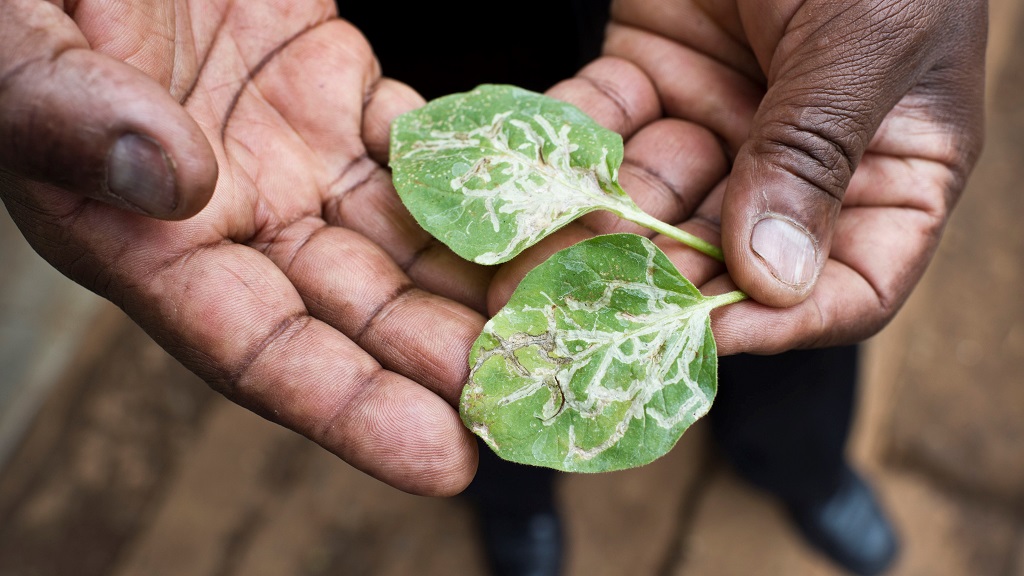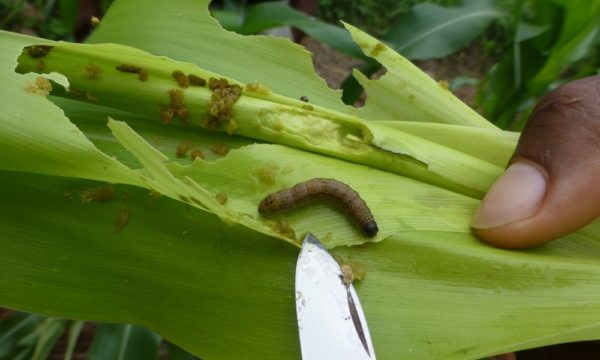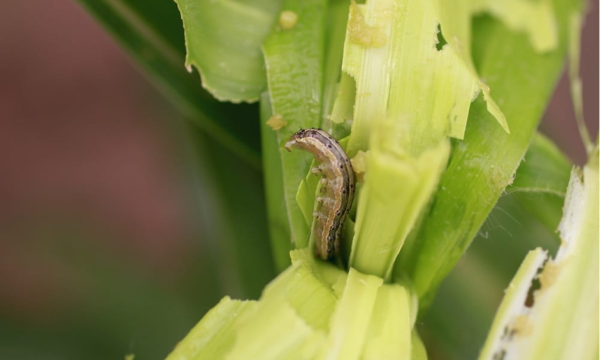Co-authored by leading plant health community representatives a newly-published paper calls for an international research collaboration in the fight against plant pests and diseases.

The paper, published in Nature Plants, brought together 28 institutions, including CABI, and analyses new perspectives and challenges on global phytosanitary research coordination; particularly as human trade and movement continues to exacerbate the spread of pests and diseases around the world.
This work kickstarts the International Plant Protection Convention (IPPC) Strategic framework 2020-2030 which foresees a development agenda on global phytosanitary research coordination.
“As the complexity of plant health challenges requires knowledge and specialized expertise that cannot be found in a single country alone, diplomacy for science triggers international multi-disciplinary collaborations to tackle these challenges”, said Dr Baldissera Giovani, Euphresco coordinator and lead author of the study.
“Global phytosanitary research coordination will speed-up harmonization of approaches and reconcile national views to move from the lowest common denominator compromise to a more ambitious vision of international plant health”, he added.
The Food and Agriculture Organization of the United Nations (FAO) estimates that up to 40% of food crops are lost each year to plant pests and diseases, a figure the CABI-led Global Burden of Crop Loss initiative is aiming to determine in much greater detail. This causes trade losses of at least USD 220 billion per year, severely affecting the food security of millions of people and seriously damaging agriculture.
“Science is the key to build synergies between national and international communities. Establishing a global research network of phytosanitary experts and researchers, and boosting international collaboration, is crucial to help both local and international authorities fight plant health threats, and find common solutions to emerging global challenges”, stated one of the co-authors, Dr. Jingyuan Xia, IPPC Secretary Officer in Charge and Director of FAO Plant Production and Protection Division.
CABI’s Roger Day, programme executive for Action on Invasives, and a co-author of the study, said “The need for international collaboration in managing phytosanitary measures has never been clearer. Establishing a global network aimed at facilitating international research efforts on regulated and emerging pests can overcome some of the limitations phytosanitary systems are currently experiencing.”
Such a global network should facilitate collaboration between policy makers, research funders and scientists and bring together national and regional research authorities such as National Plant Protection Organizations (NPPOs), Regional Plant Protection Organizations (RPPOs), governments, as well as representatives from academia, research institutes, and industries.
The need for a global research coordination network has been already identified by the phytosanitary authorities in many countries. The IPPC Strategic Framework for 2020-2030, which will be presented for adoption at the fifteenth session of the Commission on Phytosanitary Measures (CPM-15) in 2021, addresses this issue.
There is still much work to be done, and with 2020 being the International Year of Plant Health, the community is thrilled to start looking into new solutions and approaches to strengthen research coordination at the global level.
Source: Nature Plants publishes a new paper on Science diplomacy for plant health
Giovani, B., Blümel, S., Lopian, R. et al. Science diplomacy for plant health. Nat. Plants 6, 902–905 (2020). https://doi.org/10.1038/s41477-020-0744-x
Read more:
CABI to analyse the impacts of crop pests and diseases which threaten global food security
New pest risk analysis decision support tool in development from CABI
Related News & Blogs
Prioritizing high impact crop pests for actions to safeguard the plant resources of the Caribbean
The CPHD is a network of Caribbean Plant Health Directors. A major objective of the CPHD is the safeguarding of the plant resources of the Caribbean with a focus on crop plants. Naitram Ramnanan, CABI’s Regional Representative, Caribbean, reports from…
26 September 2022




